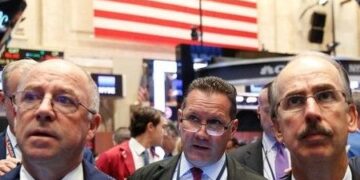As tariff-driven price hikes rattle the stock market, it’s easy to feel like your financial stability is also at risk, especially if your portfolio dips. However, market swings tied to global trade tensions don’t have to derail your long-term financial goals.
Experts recommend some strategies to shore up your finances and stop you from reacting from a place of panic.
Check Out: How To Get a 10% Return on Investment (ROI): 10 Proven Ways
Read Next: The New Retirement Problem Boomers Are Facing
The best immediate response to a shifting market is assessment, not panic, according to Jean-Baptiste Wautier, a financial and global economic policy leader at Wautier Family Office.
A common mistake in volatile times is “reactive decision-making,” he said, which might include selling off investments impulsively or attempts to “time the market,” pulling funds in and out too frequently, which rarely works.
He recommended reviewing your portfolio’s exposure to sectors directly impacted by tariffs, such as manufacturing or international trade.
Advertisement: High Yield Savings Offers
“Diversification is key,” he stressed. “Ensure your 401(k) or IRA isn’t overly concentrated in a single sector or geography. Long-term retirement plans should remain focused on balanced, time-horizon-appropriate asset allocation, not short-term policy shocks.”
Be Aware: Making This Common Investing Mistake? Experts Share the Easy (but Urgent) Fix
Consumers have already likely noticed the obvious signs of potential market volatility, such as the rising costs in consumer goods, as the result of recent tariffs. However, it’s a good idea to also pay attention to other “major indices” such as the S&P 500, the Nasdaq and similar, Wautier said. Drops in these cue “that broader economic sentiment and, by extension, personal finances may be impacted,” he said.
However, everyone’s investments will be affected “in an idiosyncratic way,” according to Jason DeLorenzo, owner and principal at Ad Deum Funds. “You must research the stocks you hold, and determine if they are foreign or domestic in nature, and act accordingly.”
Your goal is to make sure your investments are not damaged by tariff-driven price increases.
With the help of your financial advisor, or careful research, investors can consider shifting some of their holdings “toward sectors more insulated from global trade tensions, such as domestic utilities, healthcare or technology with minimal foreign dependencies,” Wautier said.
Incorporating alternative assets or bond funds can also help reduce volatility. However, he urged that any shifts or reallocations be part of a broader strategic review, “not a knee-jerk reaction to headlines.”
















